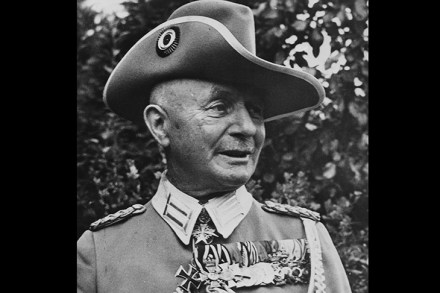The German Lion of Africa
What’s going on with book reviews? Here is the Pulitizer prizewinning (for ‘criticism’) Michael Dirda in the Washington Post, on this book’s cover: Let me say straight out that if all military histories were as thrilling and well written as Robert Gaudi’s African Kaiser, I might give up reading fiction and literary bio-graphy… Gaudi writes with the flair of a latter-day Macaulay. He sets his scenes carefully and describes naval and military action like a novelist. Leaving aside the extraordinary comparison with Macaulay for the moment, most naval and military novels that I’ve read get the historical detail right. Robert Gaudi’s book is so error-strewn that it would fail to




















